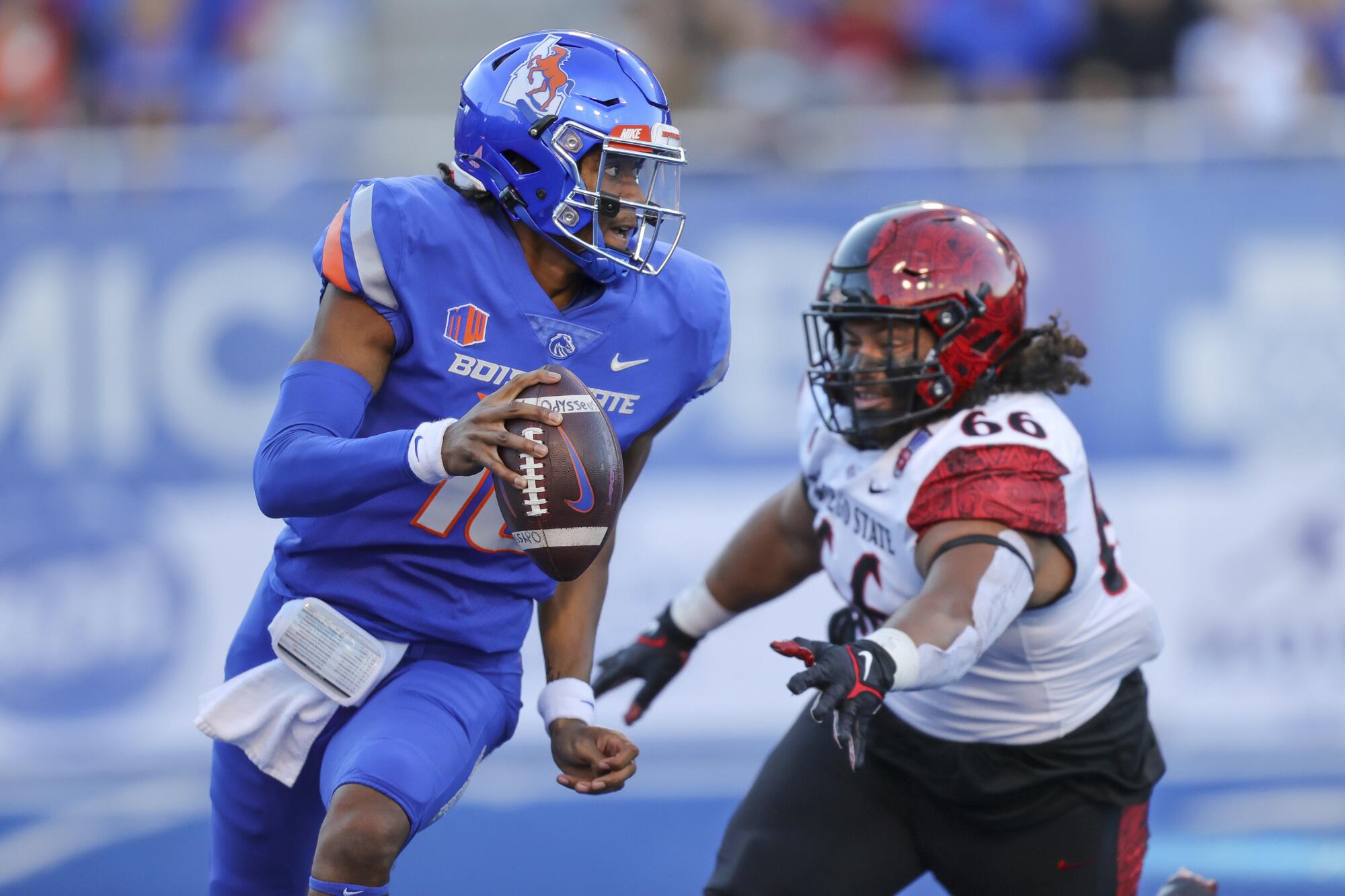
For the past decade, the Broncos have received $1.8 million more in TV payouts than their fellow conference members despite declining results in football
Buried in pages upon pages of bylaws and convoluted legalese is a 2016 codicil entitled: “Amendment to Boise State Membership in Mountain West Conference Term Sheet.”
No single item in the conference’s 25-year history, arguably, is more contentious.
It affords Boise State $1.8 million annually from the Mountain West’s media rights contract in addition to what everyone else gets, and it has no expiration date.
The Broncos still think they deserve it. Most everyone else — privately at least — grumbles. Boise State’s football program is 23-13 over the last four years, has lost five straight games against power conference opponents, hasn’t finished a season ranked in the Associated Press top 20 since 2014 and has won only one of the last five Mountain West titles.
“New (presidents and athletic directors) come into the league and don’t know the history of it,” former Mountain West Commissioner Craig Thompson said this week, “and then it’s June and it’s distribution time and they say, ‘Wait a minute, how does this work?’
“I’ll leave it at this and people can interpret it however they want: I think it was unnecessary. You did not have to do that.”
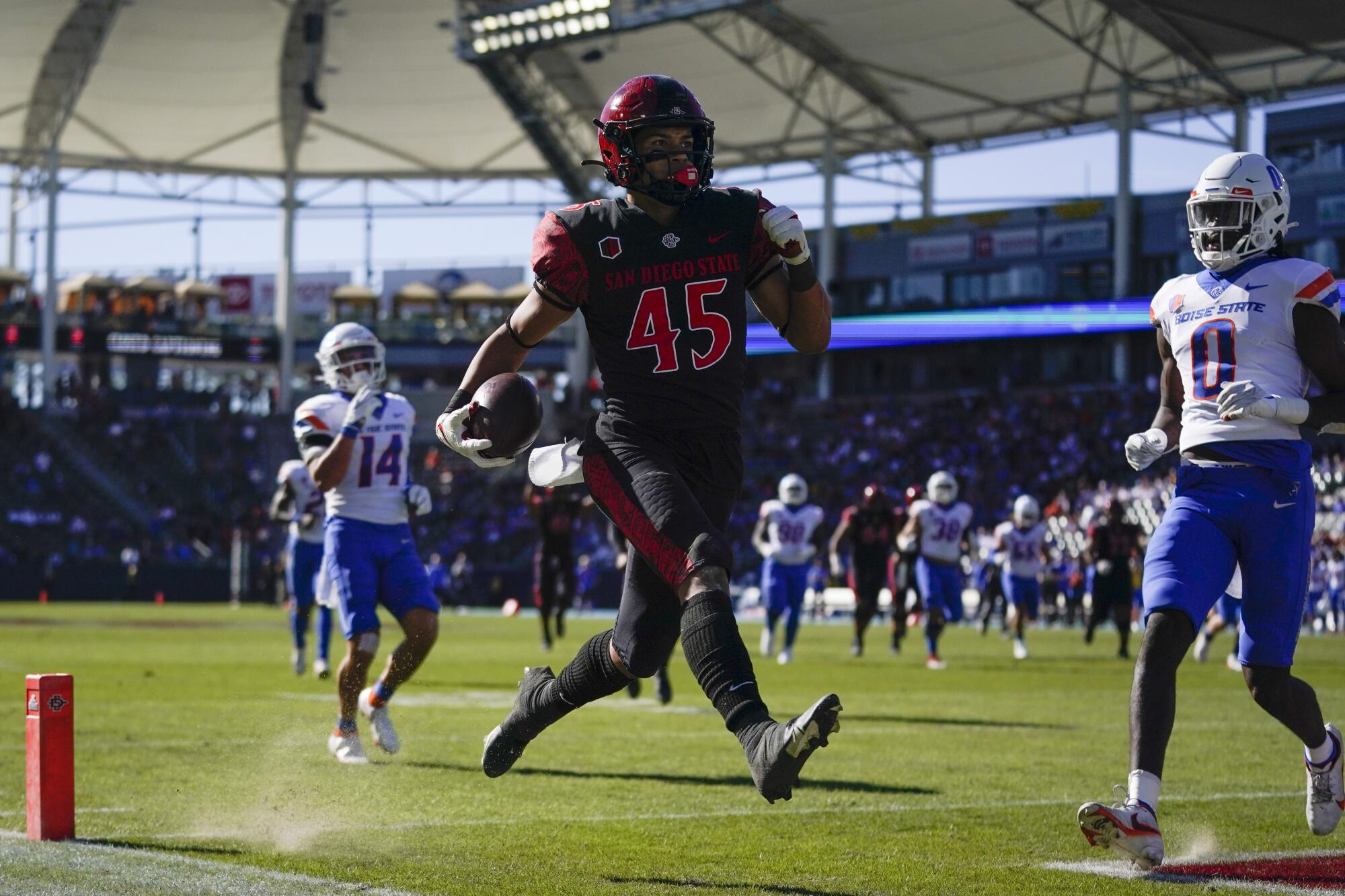
Since 2015, the Broncos have won the Mountain West championship game twice. So has San Diego State. So has Fresno State. Utah State and San Jose State have each won once.
But Boise State, which comes to Snapdragon Stadium to face SDSU on Friday night, has received $12.6 million more from the conference over that time and will get another $1.8 next summer no matter how it finishes after a 1-2 start. Since the beginning of the “carve-out,” to use media rights parlance, the Broncos have received roughly $18 million more that everyone else in the Mountain West.
Not a fan: SDSU Athletic Director John David Wicker.
The Aztecs earned the conference $10 million worth of NCAA men’s basketball tournament units from its run to the national championship game last spring but will split the bulk of that with everyone else.
“The Mountain West Conference,” Wicker said, “either needs to decide to divide all revenue evenly or pay schools that earn revenue. It can’t be both going forward.”
The genesis of Boise State’s side deal goes back more than a decade, when the Broncos and Aztecs were contemplating a move to the Big East in pursuit of more television money. Thompson and several ADs flew to Boise to convince the Broncos to stay, proposing an unequal revenue distribution system that rewarded schools for bowl participation and national TV appearances.
“Well, they went to Big East anyway,” Thompson said of the ill-fated 2012 move that collapsed before Boise State and SDSU could get there. “And when they came back, they used that against me and said, ‘Well, wait a minute, we need this to come back.’
“I’ll never forget the meeting. It was at the Royal Palms in Phoenix. I told the board, ‘You don’t have to do this because they have no place to go. There is not a Big East football.’ One president voted against it. The others said, ‘No, no, no, they’re valued to ESPN, and we gotta keep them and bring them back.’”
At the time, Boise State had gone 84-8 over the previous seven seasons, including a four-year stretch where they were 50-3 and ranked as high as No. 4 in the AP poll.
The re-entry agreement was that Boise State home games on its blue turf would be sold separately to ESPN within the Mountain West’s TV deal, and programs would be compensated based on how many times they appeared on a national network like ESPN. That got the Broncos between $1.6 and $2.2 million extra per year on top of the roughly $1.1 million everyone received from the regular media rights distribution.
To avoid fluctuations in budgeting, the “Amendment to Boise State Membership in Mountain West Conference Term Sheet” was introduced in 2017 that paid the Broncos a set amount of $1.8 million.
Then came the Mountain West’s current TV contract in 2020, with Fox replacing ESPN in the partnership with CBS through 2025-26. Thompson let it slip that the presidents voted to make this the final contact with Boise State’s carve-out.
“I made that comment, and we got our heads kicked in,” Thompson said. “We got all these threatening legal letters and challenges.”
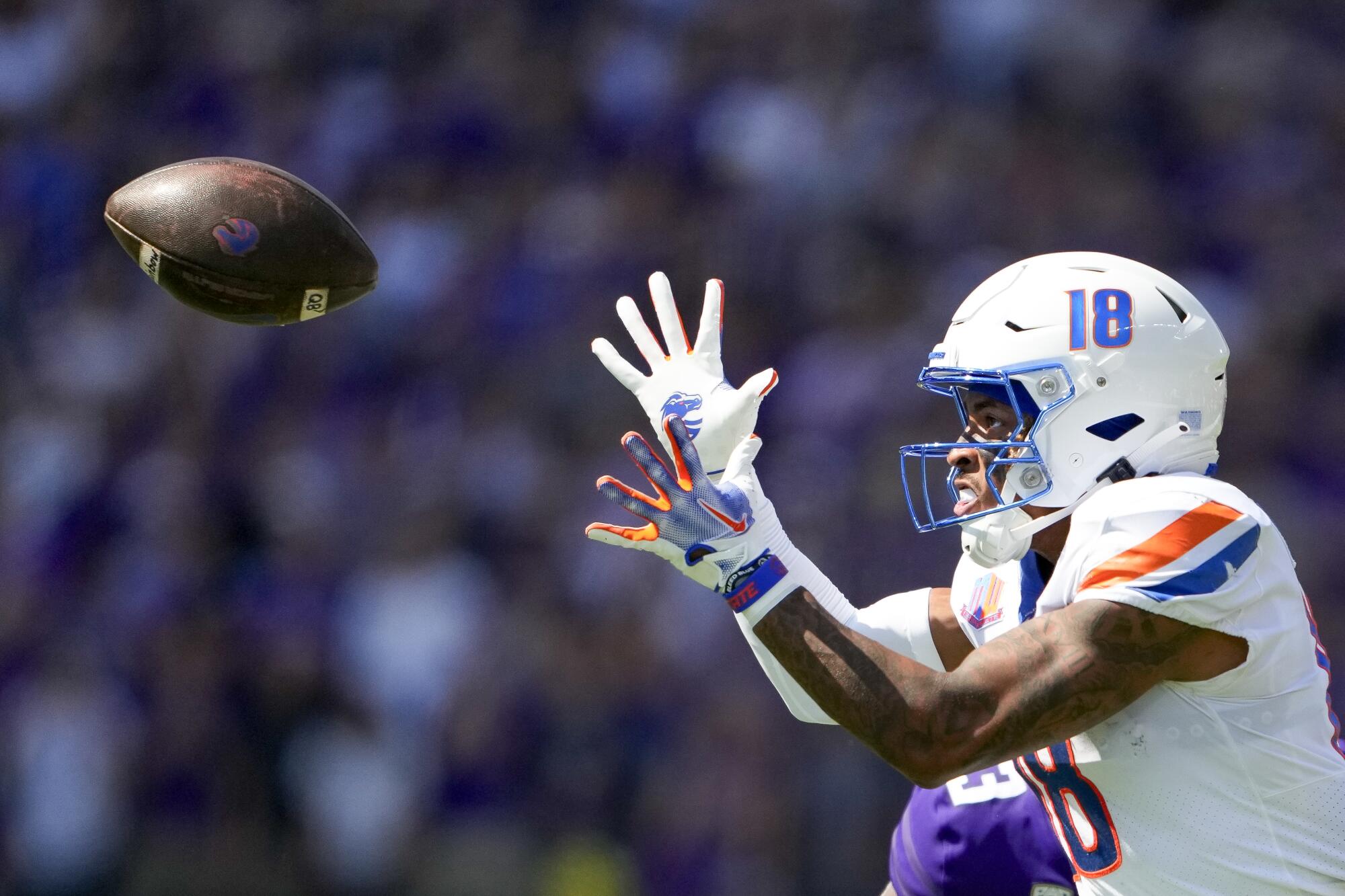
Boise State quickly filed a civil complaint in Idaho Superior Court, contending Thompson misled them and that the carve-out can’t be terminated, even by a conference vote.
“Not only did Boise State expect to retain the $1.8 million guaranteed bonus set forth in the Re-Entry Agreement Amendment,” the 17-page complaint said, “but to also gain an additional, proportionate share of the increased revenue from the new television deal with Fox.”
Three weeks later, the Mountain West blinked and agreed to rescind its vote ending the $1.8 million carve-out in 2026, although the amount isn’t proportionately as daunting with the general conference distribution increasing from $1.1 million to about $4 million.
“I think it’s more perception and envy,” said Thompson, who retired in December after a 24-year tenure as commissioner.
Asked if she might revisit that decision, new Commissioner Gloria Nevarez said: “We can’t. It’s a contract. It’s been tried before. … It is what it is.”
The Broncos aren’t what they once were in football, losing 13 of 36 games over the past four years with ESPN power rankings of 67, 54, 38 and 46. They have reached the Mountain West championship game in four of the previous five years but lost three of them.
Their argument, though, is based less on victories than viewership. In the last 10 conference championship games, those with Boise State have drawn a 31.7 percent larger audience than those without. Bowl game viewership has shown a 53 percent bump with the Broncos. (Regular-season games are harder to compare because CBS Sports Network, the other primary TV partner, isn’t part of the Nielsen ratings system.)
“The television viewership numbers indicate that Boise State is delivering value to the networks,” Broncos Athletic Director Jeramiah Dickey said in a statement provided to the Union-Tribune. “Whatever the future holds for conference affiliations, I will continue to advocate for our value being recognized and rewarded one way or another.”
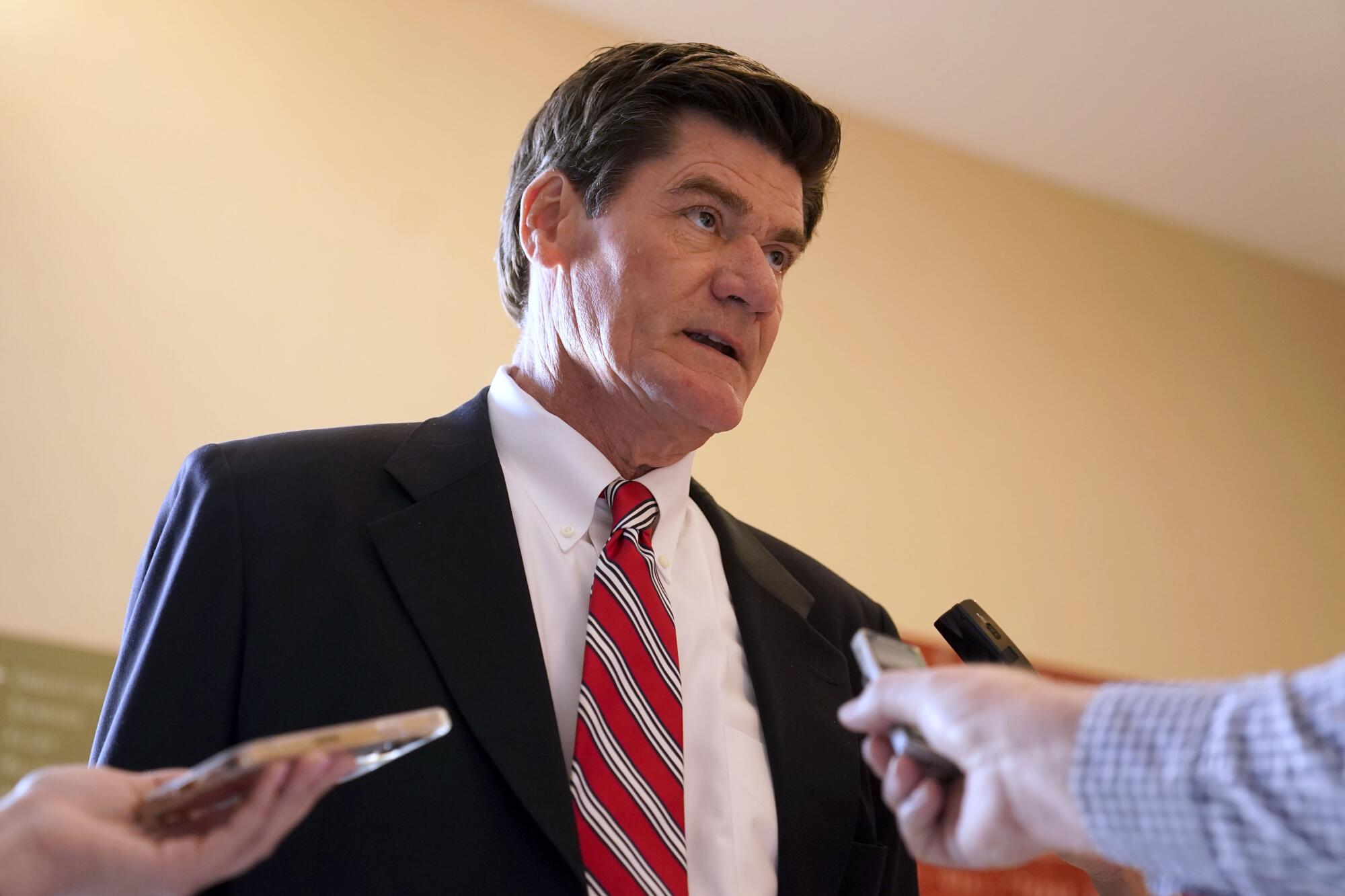
That’s where it could get interesting. If Boise State and other Mountain West schools join Oregon State and Washington State in a reformed Pac-12 or a new conference entity, the carve-out technically is voided. At the same time, the idea of some schools getting more money than others could be gaining traction over the traditional model of equal revenue distribution regardless of merit.
“I don’t know if it was a mistake or not,” Thompson said, reflecting on Boise State’s special treatment. “I thought at the time it was unnecessary and you can argue that it still is, but I think we’re going to see more of it.
“I always felt like the Big Ten’s strength is Michigan gets the same as Northwestern. I think all that is going to change in the future. I’m not a clairvoyant, but I could see one day Michigan and Ohio State, and Alabama and Georgia, saying, ‘Wait a minute. Vanderbilt shouldn’t get the same as me. Why is Minnesota getting the same as me?’ I think that’s going to be an issue for these leagues coming up in the next round of (media rights) negotiations.”
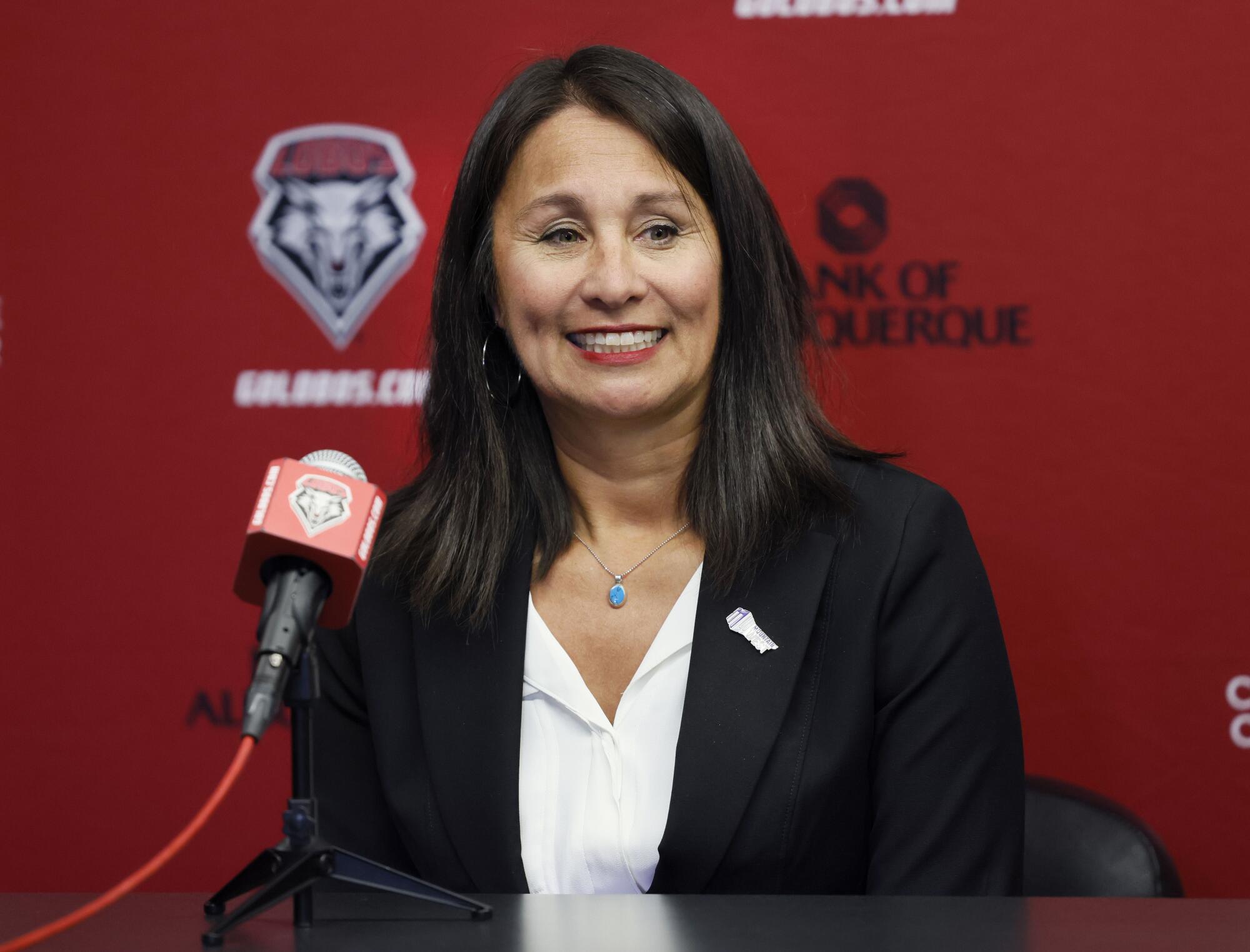
Nevarez comes from the West Coast Conference, which distributes general revenue evenly but allows basketball programs that advance further in the NCAA Tournament (namely, Gonzaga) to keep a bigger cut of those payouts. She expressed interest in a similar system for the Mountain West or a new conference.
And what, in a new conference, would happen to Boise State’s side deal?
“It would have to be addressed,” Nevarez said. “I don’t know if it would go away or it would be a renegotiation or what happens, but it would be a window for us to look at the whole revenue distribution situation.”
Sign up for U-T Sports daily newsletter
The latest Padres, Chargers and Aztecs headlines along with the other top San Diego sports stories every morning.
You may occasionally receive promotional content from the San Diego Union-Tribune.
